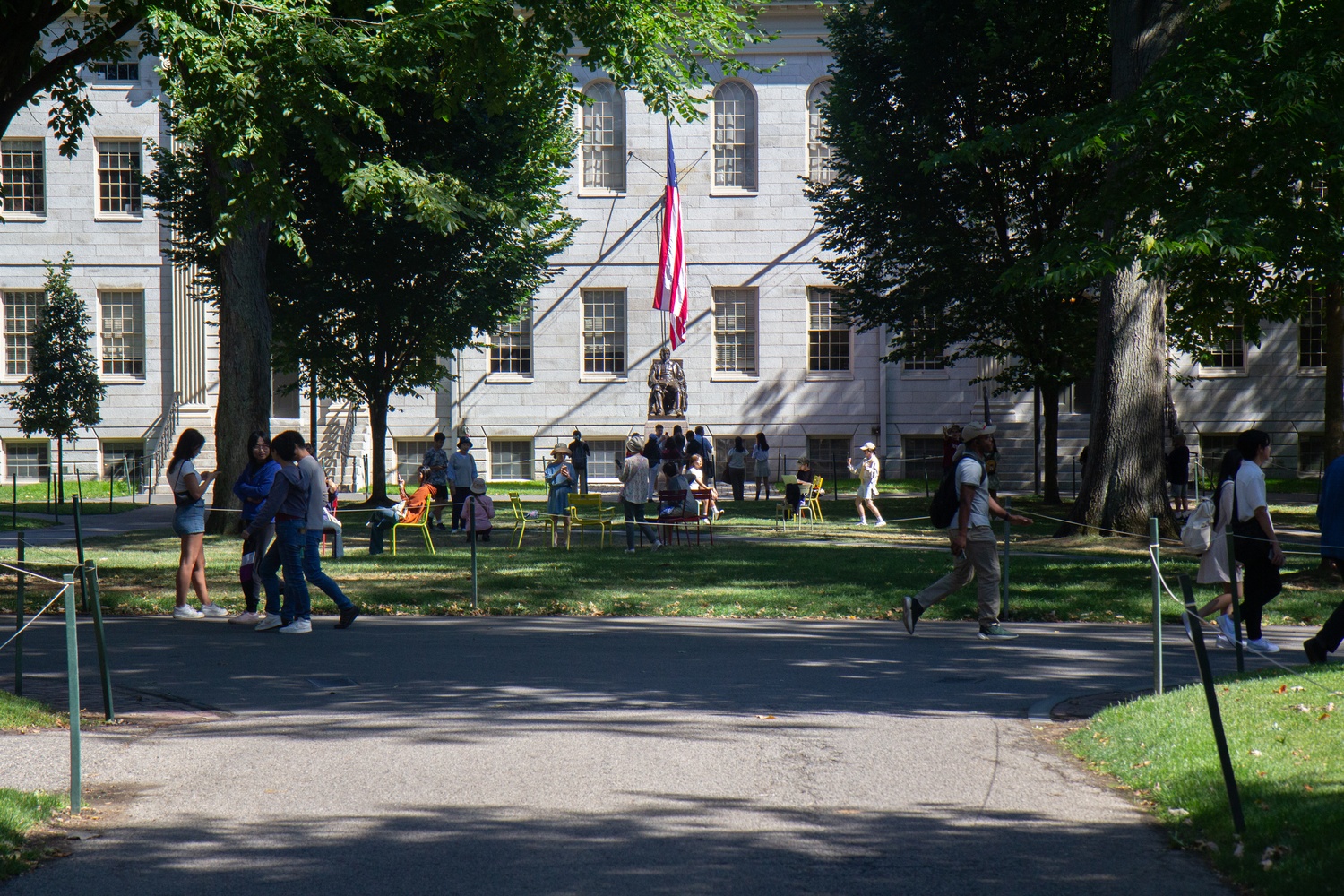
News
Summers Will Not Finish Semester of Teaching as Harvard Investigates Epstein Ties

News
Harvard College Students Report Favoring Divestment from Israel in HUA Survey

News
‘He Should Resign’: Harvard Undergrads Take Hard Line Against Summers Over Epstein Scandal

News
Harvard To Launch New Investigation Into Epstein’s Ties to Summers, Other University Affiliates

News
Harvard Students To Vote on Divestment From Israel in Inaugural HUA Election Survey
Harvard’s Lawsuit Proves That Resistance Is Possible

After a dark few months for our University and our country, a glimmer of hope has emerged.
Yesterday, a federal judge ruled in favor of Harvard in its lawsuit against the Trump administration for cancelling $2.6 billion worth of federal grants.
The decision marks a new phase in the fight against authoritarianism in America. If the rest of civil society, from universities to law firms to everyday people, learn one thing this week, let it be this: Resistance is possible, necessary, and — most importantly — it can work.
Harvard wasn’t the first institution to face a federal shakedown. In the early months of the second Trump administration, Columbia University confronted fire from Washington and accepted a host of reforms seemingly handed down from the White House. Many law firms, facing pressure over factors including associations with clients adversarial to Trump and firmwide DEI policies, also bent the knee. The message was clear: Get in line.
In April, Harvard was asked to follow suit. That month, the University received a letter from the Trump administration demanding ideological oversight of the students Harvard admits and the faculty it hires to teach — all under the pretext of protecting Jewish students. The University made the only choice consistent with its commitment to academic freedom, but it came with a multi-billion dollar price tag.
Since then, matters only worsened. From President Trump’s firing of the Bureau of Labor Statistics commissioner after the agency released unfavorable job numbers, to his apparent attacks on the independence of the federal reserve, the White House continues to threaten core pillars of American life. Universities haven’t been exempt either. Besides Columbia, Brown University recently agreed to pay $50 million to aid workforce development in the state, apparently to avoid “government intrusion.”
Against that backdrop, the ruling in Harvard’s lawsuit provides a welcome reminder that universities don’t have to sacrifice their values in service of their research. Of course, there will be more letters filled with infeasible or unconstitutional demands. But now, there’s a precedent for how to fight back.
Still, Harvard’s own fight is very much ongoing. The ruling itself was to be expected, delivered by an Obama appointee who has ruled in the University’s favor in other litigation. The White House has already announced its intentions to appeal, and the process could be long.
Now is the time to steel ourselves for what’s to come. The University should take the ruling as an opportunity to hold true to the principled stance it espoused when it first sued the Trump administration. The decision should embolden Harvard to reject a dangerous settlement and prompt a rethinking of the internal changes it’s made, seemingly with the aim of pleasing the White House.
From the replacement of the Women’s Center and other DEI offices with an opaque and sanitized “Office for Culture and Community” to the clampdown on scholarship and student activism on campus, Harvard has dealt some serious blows to its core values of academic freedom and inclusion.
If our University can hold the line against authoritarian overreach in Washington, it must also find the courage to do so here at home.
In the meantime, the judge’s ruling provides a blueprint for other institutions. Here’s hoping they follow suit.
This staff editorial solely represents the majority view of The Crimson Editorial Board. It is the product of discussions at regular Editorial Board meetings. In order to ensure the impartiality of our journalism, Crimson editors who choose to opine and vote at these meetings are not involved in the reporting of articles on similar topics.
Have a suggestion, question, or concern for The Crimson Editorial Board? Click here.
Want to keep up with breaking news? Subscribe to our email newsletter.
